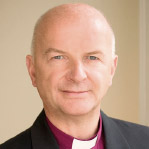 Bishop Mike asks whether our churches are doing all they can to make sure the vulnerable are safe in our midst?
Bishop Mike asks whether our churches are doing all they can to make sure the vulnerable are safe in our midst?Back in July, Libby Purves wrote in The Times that, In the 1980s we failed the young. We still do.
As I visit parishes and talk to parishioners and colleagues, Im still not sure that the message is getting across. Children and adults who are vulnerable should be able to think of the Church as the safest place to be. Sadly, in times past, we have fallen short of this ideal.
The Church of England, together with other churches, does not come to all this with a clean bill of health. In days gone by, and sadly on occasions still in the present, our resistance to taking these issues seriously has made us collusive with appalling behaviour, with the outcome that too many peoples lives have been seriously damaged, if not destroyed.
The Archbishop of Canterbury is very clear, as I am myself, that we have to work with the highest standards of safeguarding: this is a 'zero tolerance zone'. He is equally clear that we must be open and transparent in reviewing our personnel files to ensure that cases overlooked or ignored in the past are identified and appropriate action taken. We shall do all we can to cooperate fully with the Governments Independent Inquiry into Child Sexual Abuse (IICSA inquiry).
The starting point in all this is simple but requires your cooperation.
Safeguarding is the responsibility of us all.
It is our common responsibility, each and every one of us, to do all we can to ensure that our churches set the highest standards in relation to keeping all in our midst safe. To ignore issues of concern, or information of a sensitive or worrying nature, is truly no longer an option. To do so is to make us complicit with potentially terrible and damaging behaviour and attitudes.
If you have ever encountered abuse in any way, or have some deep anxieties about the behaviour of anyone around you, in church or anywhere else, you really must report it to someone in responsibility, and at the earliest opportunity. Your own Parish/Benefice Safeguarding Officer (PSO) or alternatively, our Diocesan Safeguarding Adviser, would be a good starting point to make a complaint or raise an issue.
Raising a concern quickly, and with the right people about something you have experienced, or seen and heard that is unhealthy or even potentially unhealthy, enables support to be given where needed and can prevent irrevocable damage being done. People often fear that a call to social services results in a child being taken from its parents; that a complaint to the Bishop will lead to a minister losing his or her licence; that contacting the police about domestic abuse means a prison sentence. But where that call comes early enough there is a wealth of support available to prevent the situation escalating.
This relies of course on people you and I being willing to voice their concerns, rather than hoping that they wont be the one to have to raise it. This is the culture change we need; the recognition that we must all be willing to raise our concerns early and tell the right people that support is needed. If we let what we fear might be the consequences stop us from acting, we fail to protect the young and vulnerable among us.
If you feel you would like to personally take some further responsibility in all this, I encourage you to visit our Safeguarding pages on this website, where you will find two safeguarding awareness training modules; one relating to children, the other to vulnerable adults. These are free to use and for anyone at all who would like to better get to grips with spotting the signs of potentially damaging behaviour. You will need your parish code to access these modules, but this is freely available, again from your PSO, or Leanne Smith.
I think the point is made, but now it rests on all of us to act.
On all of us.
If you need to, now or in the future, please don't hesitate to pick up the phone. You'll find useful numbers below.
We can persuade ourselves that all this has gone too far when we read about primary school teachers being unable to put sunblock on the children within their care. But to do so, is to start the quick and ready slide into collusion.
So let me conclude where I began. Our churches need to be the safest places for children and adults who are vulnerable. Sadly this is not always the case and it is now down to all of us to do all we can to make sure that those who would abuse power and trust by inflicting shocking behaviour on others are brought to account.
Not long ago we and other institutions acted with indifference towards these issues. I hope and pray that those days are behind us, but we need to be constantly diligent in watching over those in our care.
Jesus famously said, Let the little children come to me, and welcomed them safely and healthily. We must do the same. We must be vigilant. All of us.
+Mike
August 2015